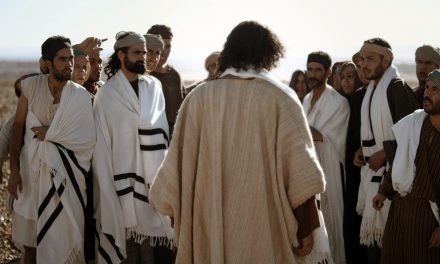A good rule of interpretation is to interpret the unclear with the clear. In the role of women in the church in Scripture, there is a tension. In many places in Scripture it appears that there are great liberties given to women. And then in a few places it seems like there are great restrictions. It’s what has caused angst and uncertainties for a couple thousand years now.
The Scriptures that have caused these uncertainties mainly are 1 Cor 14:26-39 and 1 Tim 2:5-11. In 1 Corinthians there were issues with disorderly worship and some of that was coming from women. But the response Paul gave appears to be so strong (in English) it’s startling. And in 1 Tim 2 the issue was a problem of false teachers in the Ephesian church. Paul had left Timothy there to straighten things out. Paul talks about several parties that need correcting. He talks to specific men, then men in general, then women in general, and then there is this troubling section that again is surprisingly strong. The problem is that both Jesus and Paul appear to highly honor women. Especially Jesus. And then even Paul appears to give them a place in a world that didn’t offer them much of a place. Yet these two troublesome Scriptures appear and throw a wrench in the trajectory.
So with that let’s start with the really broad picture from both Jesus and Paul in their interactions with women. Let the big picture help bring clarity to the finer details.
Jesus and His Relationship with Women
He Spoke to Women
Without a doubt Jesus was so counter-cultural in his value towards women that it troubled even the disciples. On one occasion the disciples had left to go into town and get something to eat for everyone, but they left Jesus to himself as he was exhausted. It was at the well of Jacob that Jesus chose to rest. And of all things there was a woman there in the middle of the day. She was not only a woman but one who was of the hated breed – the Samaritans. And hated by the locals as well, probably for her promiscuity.
Jesus engaged her in discussion and even plainly told her that He was the Messiah. It was so rare that he ever did this. He gave the treasure of clarity to her–to a woman. When the disciples returned, they were “surprised to find him talking with a woman” (Jn 4:27). The Scripture says the disciples wanted to ask the Samaritan woman “What do you want?” or to him, “Why are you talking with her?” (Jn 4:27) but they didn’t. It was just so shocking that Jesus would even speak to a woman. And a Samaritan woman at that. It would lead to many coming to Him as Lord.
He Defended a Woman
Then there was that time that the woman caught in adultery was being justly accused. She had been caught in the act. And while she was on the receiving end of getting the Law and the deadly stones, the guilty man was on the receiving end of grace and freedom. With stones in their hand ready to finish her off and perhaps even Jesus if he answered incorrectly, they challenged him with what he would do. Stooping to the ground he began to write in the dirt. Silence is a fierce contender. They persisted in their questioning him until finally Jesus stood up.
“If anyone of you is without sin, let him be the first to throw a stone at her,” (Jn 8:7) Jesus said. One by one they dropped their death sentences. Jesus who had been silent to them now spoke to her.
“Woman, where are they? Has no one condemned you?”
“No one, sir,” she said.
“Then neither do I condemn you,” Jesus declared. “Go now and leave your life of sin.” (Jn 4:10-11).
Jesus Traveled with Women just as the Disciples and they were the “Providers”
It wasn’t always ‘just Jesus and the Twelve.’ Jesus also traveled with women.
“After this, Jesus traveled about from one town and village to another, proclaiming the good news of the kingdom of God. The Twelve were with him, and also some women who had been cured of evil spirits and diseases, Mary (called Magdalene) from whom seven demons had come out; Joanna the wife of Cuza, the manager of Herod’s household; Susanna, and many others. These women were helping to support them out of their own means” (Lk 8:1-3).
It was the women who were the “providers” of the missionary mission of Jesus.
Jesus Stood to Protect Woman
In the culture that Jesus was in at the time a woman who lived alone could not make it. Marriage was not just about love but survival. The same opportunities of work did not exist. Divorcing a woman and leaving her to fend for herself was horrific. And in this context Jesus stood for the women (Mt 19:1-12), the children (19:13-15) and the poor (19:16-30).
Men were quickly and easily divorcing women, leaving them destitute. In fact, a contemporary of the time (Rabbi Hillel) taught that a woman could be divorced for burning toast. Jesus confronted the men and their blasé attitudes towards women and marriage. In doing so he was calling men on the carpet to honor their wives and protect women from desolation.
Summation:
We could go on and on and on about how Jesus honored, protected, and valued women in a culture that didn’t see women as the same. He upheld their value so much so that wherever Jesus is preached, throughout history women have been restored to places of value and honor.
Even in his dying breaths Jesus showed provision and care for the most precious woman in his life–his mother. His brothers would have taken at least some care for her as was their obligation as sons, but they were strangely absent in caring for her when Jesus was dying. But John wasn’t. So it was to John he gave a charge to care for his mother, and for his mother to have him as a son (Lk 19:25-27). I don’t think it was coincidental that John was honored with a long life.
Time after time Jesus showed high value to women. They were his partners in ministry, the focus of his care, the people of his protection, and more.
The Apostle Paul
Paul gets a bad rap for his treatment of women primarily based on the two Scriptures that are hard to understand. But again, let’s look at the big picture of Paul’s life before we go to the two hard sections.
Paul Partnered with Women in Ministry
When Paul was writing to the Philippians there were two women that he was needing to offer some correction. For whatever reason they just did not get along. He pleaded with the Philippians to help them work this out. In doing so, he referred to them as “women who have contended at my side in the cause of the gospel” (Php 4:3).
This is actually quite startling. They contended at his side, not at his feet. Rabbis, gurus and scholars had people at their feet. Considering Paul’s education and training, he could very easily have claimed guru status. But Paul was clear–these women served alongside of him. Not only that but their work was “in the cause of the gospel.” It wasn’t just the fact that they were slaves/servants to him in a culture which had slavery everywhere, but these women were at his side “in the cause of the gospel.” They were fellow workers in the kingdom and were actually so valued by Paul that he wanted to see them restored to one another so they continue on with the business of the gospel.
He said of these women that their names “are in the book of life” (Php 4:3). We blast past this and don’t realize what an earth shattering statement that may have been. Even today in a very large world religion in the Middle East, women are not seen as recipients of the Holy Spirit. Nor as equals in the blessings of God. But here in Jesus, women “are in the book of life” just as a man was in that same book. Startling.
He Partnered with them in Church Planting
Priscilla and Aquila were part of the founders of the church in Ephesus. Paul partnered with them in Corinth and then together they sailed to Ephesus where they stayed and Paul moved on. While Priscilla and Aquila were living in Ephesus, they were at a synagogue service when they heard a “learned man, with a thorough knowledge of the Scriptures” (Act 18:24). His name was Apollos and he spoke powerfully on behalf of the Lord. But while he had a thorough knowledge of Scripture, he still was missing an understanding of baptism. So they invited him to their home and took this powerful man and “explained to him the way of God more adequately” (Acts 18:26).
It doesn’t just say Aquila taught him but it was both Priscilla and Aquila. This couple was very dear to Paul. Several times he sent greetings to them and called them both his “co-workers in Christ” (Rom 16:3).
He gave Honor to Timothy’s Mother and Grandmother
He wrote to Timothy, “I have been reminded of your sincere faith, which first lived in your grandmother Lois and in your mother Eunice and, I am persuaded now lives in you also” (2 Tim 1:6). Clearly Paul had great respect for the faith of these women. Women that more than likely were the teachers of Timothy in his youth and beyond.
He Spoke to Women and Evangelized Them
Like Jesus, Paul spoke to women. Like the disciples were shocked when Jesus spoke to a woman, Paul’s speaking to women was more than likely counter-cultural shock as well. Especially when they were in Philippi as the women were there doing the wash more than likely. It’s not that women and men never intermingled but it’s that women did women things and men did men things. Paul could have stayed away from them very easily…it would not have been “manly” to be hanging out with the women at this time. He had every excuse in the book to distance himself and the others. At the very leads he could’ve waited until their husbands or other men were around or went to their house. We do read that Lydia and presumably others had “households” (Acts 16:14). It would’ve been possible.
Yet Paul and his crew went there to find a place to pray but when they saw the women they went to them, sat down with them and shared the gospel (Acts 16:13-15). Lydia came to the Lord and soon a church was born.
He Often Greeted Women in His Letters Who Worked Hard in the Lord
Women were often mentioned in Paul’s letters of greeting. He not only mentioned them but would honor their work in the gospel. In fact one of them he would call “his dear friend” (Rom 16:12). Others he would describer as ones who “worked very hard in the lord (Rom 16:12).
- Phoebe – “I commend to you our sister Phoebe, a servant of the church in Cenchrea. I ask you to receive her in the Lord and in a way worthy of the saints and to give her any help she may need from you, for she has been a great help to many people, including me” (Rom 16:1)
- Priscilla and Aquila – “co-workers in the Lord” (Rom 16:3; 1 Tim 4:19)
- Junias – “my relatives…outstanding among the apostles, and they were in Christ Jesus before I was” (Rom 16:7)
- Tryphena and Tryphosa – “those women who work hard in the Lord” (Rom 16:12)
- Persis – “my dear friend..another woman who has worked very hard in the Lord” (Rom 16:12)
- Julia, Nereus’ sister “and all the saints with them” (Rom 16:15)
- Chloe – “sister” (1 Cor 1:11)
- Euodia and Synthche – “loyal yoke-fellow…contended at my side in the cause of the gospel…fellow workers, who names are in the book of life” (Php 3:3)
Summation
When we read these words the hearts of women everywhere were soaring, especially in the first-century. In so many ways Paul not only honors them but treats women as equals in ministry. They were “yoke-fellows” and “co-workers” and “worked very hard in the Lord.” They were vital parts of the gospel ministry and Paul honored them frequently. He took notice of their work in the gospel and even called on others to honor women such as these.
It is this big picture that will help us to give insight into the words that we may have more difficulty to understand.






